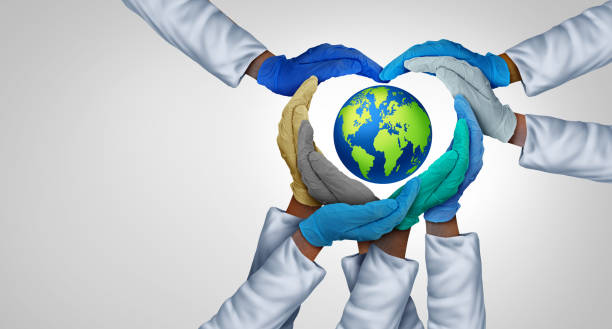Closing a key international development forum on Thursday, the deputy UN chief observed that a year of “immense challenges” has reversed progress on meeting the Sustainable Development Goals (SDGs).
fter eight “solid days” of deliberations at the High-Level Political Forum on Sustainable Development (HLPF), Amina Mohammed attributed the COVID pandemic to “a reversal of SDG progress in some areas, and delayed action on many of the major transitions required to meet our 2030 goals”.
She said the pandemic has had a “deeply negative impact” on health and well-being; employment, businesses, incomes, education; and human rights, with “a particularly damaging effect on women and girls”.
Building on emergency actions
Throughout the Forum, during which nine Global Goals and 47 Voluntary National Review outcomes were examined in depth, many participants observed that some of the measures put in place during the pandemic could provide a foundation for SDG progress.
Ms. Mohammed gave the examples of digital learning, which could help to transform education more broadly, along with building on critical fiscal support many countries had provided to their economy, jobs and people.
“Governments should now consider whether some of these measures can be integrated into comprehensive social protection systems”, said the UN official.
Recover, restart
Recovery efforts can be designed both to restart economies and accelerate SDG implementation.
Ms. Mohammed said that stimulus packages and Special Drawing Rights for foreign exchange reserves, can be leveraged to advance gender equality, boost investment in education, health and social protection. They could also be used to accelerate climate change mitigation and generate decent jobs.
But there can be no pandemic recovery without “international solidarity and cooperation”, including through climate finance and financing for development, she added.
Pandemic ‘still raging’
For many developing nations, “the pandemic is still raging, people are still dying at unacceptably high levels and economies are in dire straits”, Ms. Mohammed said.
“We must support these countries in their response to the COVID-19 pandemic and in recovering better to accelerate SDG implementation”, she underscored.
While this applies “first and foremost” to ensuring universal access to lifesaving vaccines, she stressed that it also extends to delivering “a financial lifeline” for those States faced with major debt pressures as well as for mobilizing resources, technology, know-how and partnerships to “facilitate economic transformation”.
UN support
The UN development system is committed to “fully supporting this endeavor”, she said. Under the leadership of empowered and independent Resident Coordinators (RCs), UN country teams have responded well to the needs of Governments throughout the pandemic, she told ministers.
Moreover, following three years of reforms, they are “primed to deliver the transformative support” that Governments demand to accelerate SDG implementation.
‘Unity of purpose’
With “political leadership, solidarity and unity of purpose”, the deputy UN chief asserted that we can end the pandemic, secure improvements in people’s lives between now and 2030, and “keep the promise” of the 2030 Agenda for Sustainable Development.
“We must not drop our collective ambition when the needs have never been greater”, she concluded.








 English (US) ·
English (US) ·